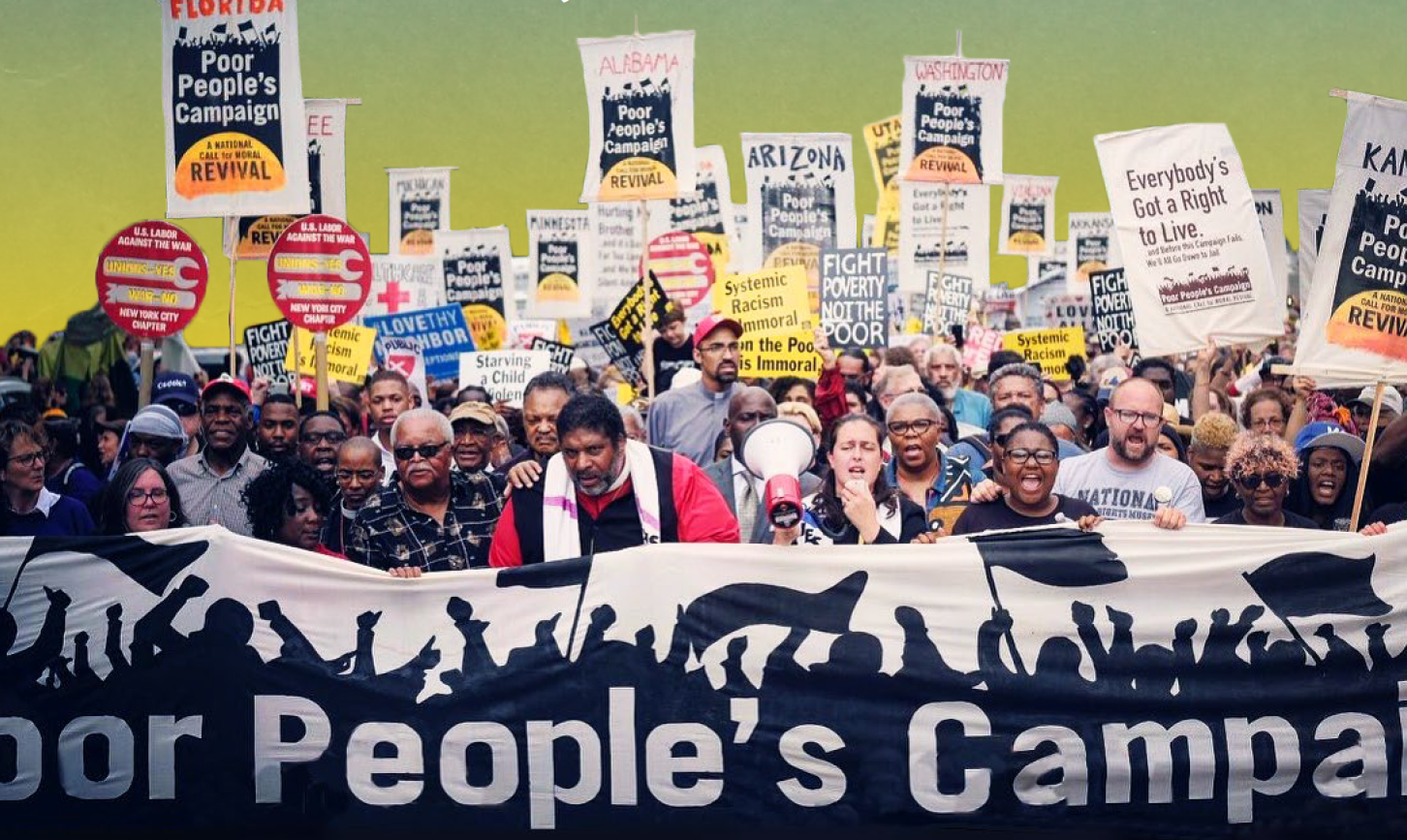It’s Time to Divest from Systems of Harm and Build an Infrastructure of Care
By
Samantha Garcia
Posted:
|
Military & Security

Last week Congress passed a bipartisan budget deal that provides $730 billion in domestic spending compared to $782 billion for the military and war. The legislation boosts military spending over $40 billion beyond Trump-era spending while stripping $15 billion for COVID-19 aid as the pandemic continues worldwide.
The biggest winners in this budget deal? For-profit military, weapons, and detention contractors. While beneficiaries of the military industrial complex secured billions, everyday Americans brace themselves for inflation prices, concern over the Russian invasion of Ukraine (funding to counter the Ukraine invasion represents less than one percent of military spending in the bill), and a slew of relentlessly underfunded domestic needs.
Passed with very little scrutiny or congressional pushback, U.S. military contracts totaled $3.4 trillion in the last decade alone. One thing is clear: Congress has prioritized corporate profits over constituents' needs.
Prior to the pandemic, 140 million people in America—a so-called “first world country”— were living without their basic needs met. In the last two years that number has only increased. In 2021 economic and racial inequality grew larger while the rich got richer and corporate profits soared. Lack of access to education, health, and wealth-building opportunities are inherent to poverty. Poverty is its own deep-rooted insidious violence that’s strategically unaddressed in part because it's easier to cast personal blame or treat symptoms than to expose and address systemic inequities.
New Mexico, where I was raised, is the third poorest state in the nation and relies on a militarized economy. Many essential services are struggling amidst funding shortages and other challenges; the national guard was called in to New Mexican hospitals and schools earlier this year to supplement chronic staff shortages.
New Mexico is predominantly composed of people of color with many who share a similar story regarding the source of their dysfunction and suffering. In my experience as a mental health therapist, many of the problems clients face are actually symptoms of root causes like extreme poverty, systemic racism, severe lack of access to education and funding. Rev. Dr. Martin Luther King adamantly warned of “the three evils of society:” racism, poverty, and militarism.
During treatment clients often identify that their daily distress and interpersonal conflicts are exacerbated by scarcity and deprivation of basic resources like housing, healthcare, and good-paying jobs. Predictably, relapses and anxiety and depression rates have skyrocketed during the pandemic.
And while New Mexico is a poor state with numerous critical human needs going unmet, New Mexican taxpayers pay $30 million for federal prisons, about $100 million on immigration and border enforcement, and $3 billion to the military every year. This is our money, we’re paying for this. Taxpayer dollars fund these systems that are actively hurting and traumatizing our communities and have for generations.
How do we strive for collective liberation and integration?
Acknowledging the short and long term harm of these institutions is imperative to foster individual and collective consciousness. Awareness of this stands to inspire inner action as well as movement towards revolutionary healing by transforming structures that oppress.
Bottom line: we need to divest from systems of harm and build an infrastructure of care.
Community clinics, non-profit community-based organizations, rehabilitation centers, childcare, public housing, clean energy jobs, and other caregiving institutions help to ameliorate pain and provide hope but we mustn't forget that transformational change occurs with systemic change. We need to invest in caring institutions that intervene and lessen the strain and effects of these nocent systems.
The NM Caregivers Coalition estimates that by 2028, 66 thousand home care jobs will need to be filled in New Mexico. Advocates need to pressure congress to invest in institutions that care and prioritize domestic and international wellbeing, while divesting from systems of violence and harm.
In June, The Poor People’s Campaign, a national, cross-racial and social movement, will lead a mass Poor Peoples’ and Low-Wage Workers’ Assembly and Moral March on Washington to advocate for the systemic change we need to transform our economy to meet all people's needs.
With the passage of the latest budget package Congress crudely showed us their firm and long standing commitment to inequality, corporate greed, and military spending. We won’t stand for it.
Samantha Garcia is the New Mexico Fellow at the Institute for Policy Studies.